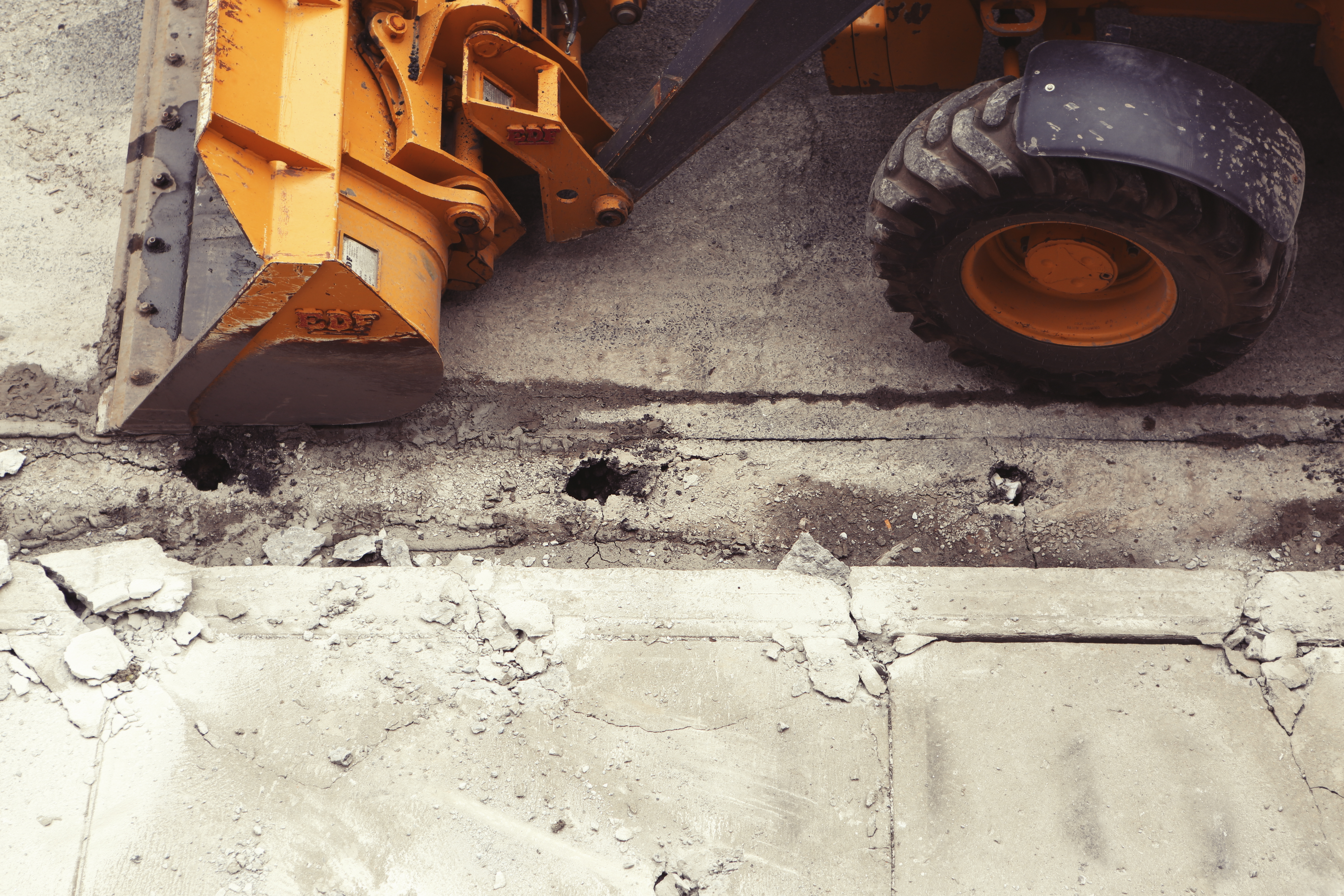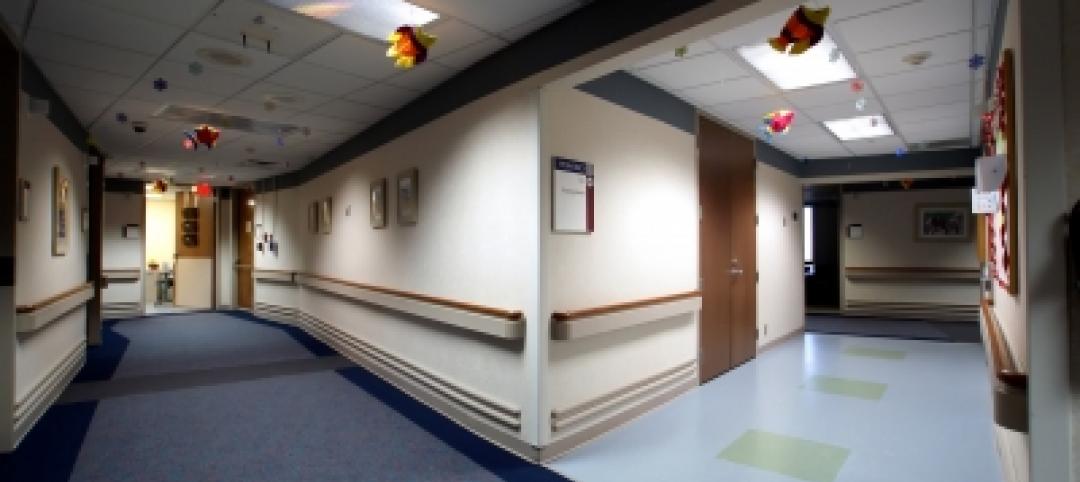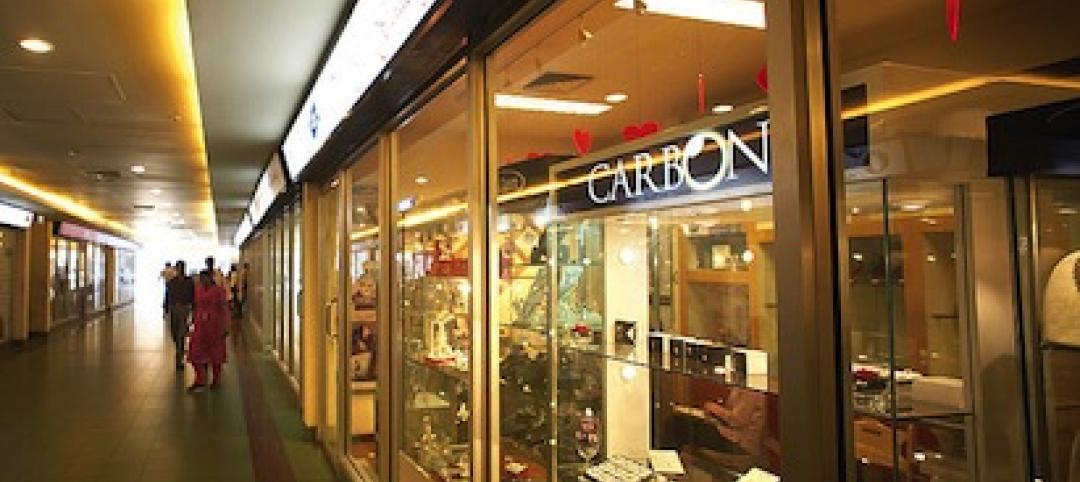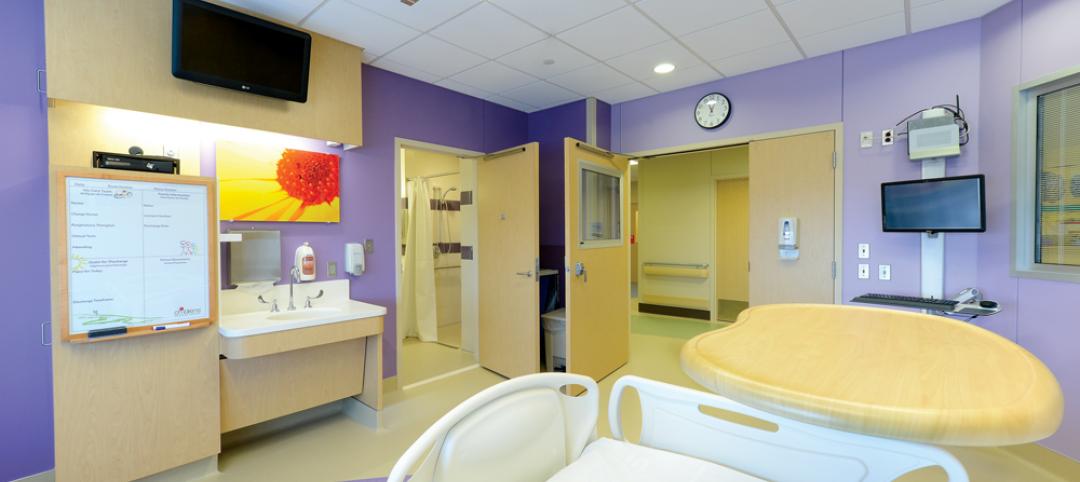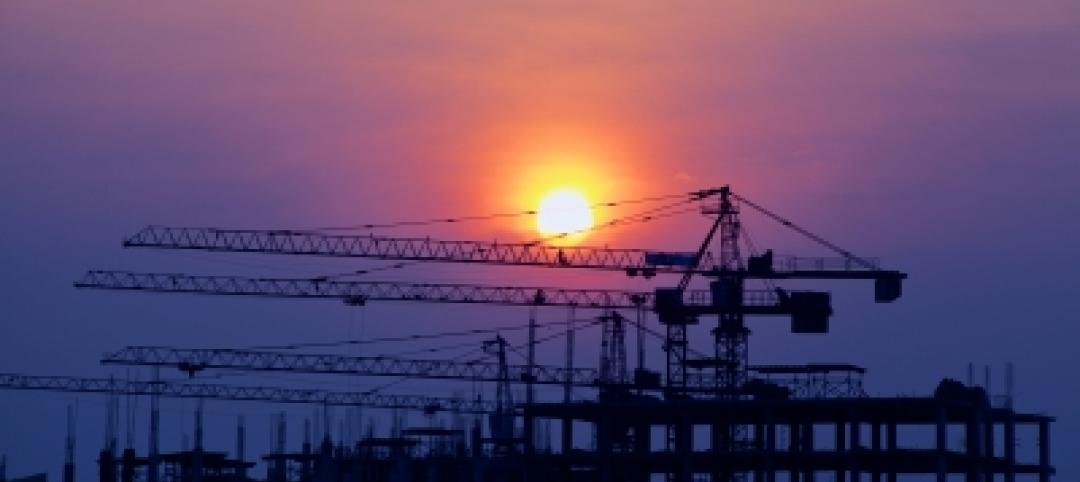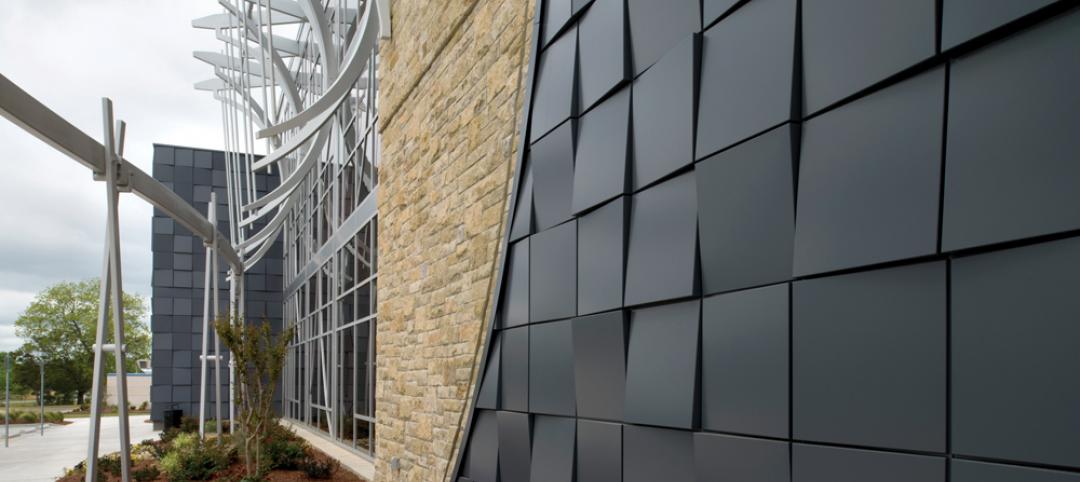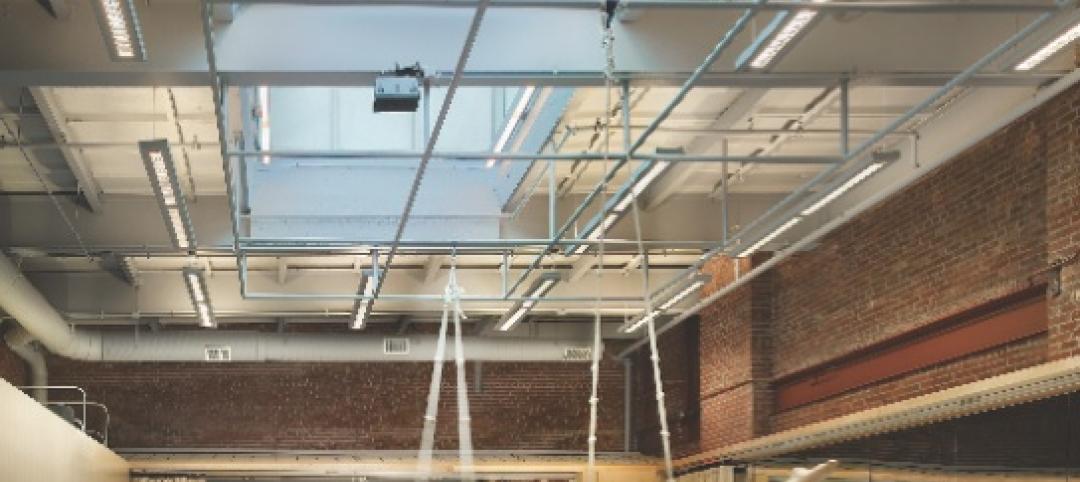Blame it on the weather. That's what many economists have been doing over the past two months as economic data continue to disappoint. Retail sales, durable goods orders, and other categories have not been as strong as anticipated.
Nonresidential construction has often proved an exception, with the industry's momentum gaining steam recently. However, in February, nonresidential construction spending remained virtually unchanged, inching down 0.1% on a monthly basis, according to the April 1 release from the U.S. Census Bureau.
The February 2015 spending figure is 4.6% higher than February 2014, as spending for the month totaled $611.5 billion on a seasonally adjusted annualized basis. The estimate for January spending was revised downward, from $614.1 billion to $611.9 billion, while the government revised December's spending estimate upward from $627 billion to $629.3 billion.
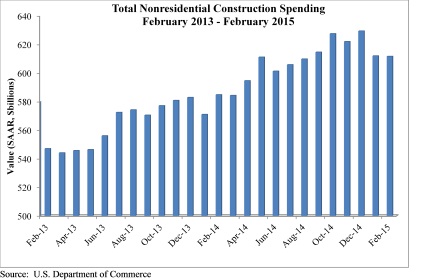
"Construction is impacted more by weather than just about any economic segment, and the impact of February's brutal weather is evident in the government's spending figure," said Associated Builders and Contractors Chief Economist Anirban Basu. "ABC continues to forecast a robust nonresidential construction spending recovery in 2015, despite the most recent monthly data, with the obvious exceptions of industry segments most directly and negatively impacted by declines in energy prices.
"The broader U.S. economy has not gotten off to as good a start in 2015 as many had expected with consumer spending growth frustrated by thriftier than anticipated shoppers," said Basu. "With winter behind us and temperatures warming, the expectation is that economic growth will roar back during the second quarter, which is precisely what happened last year. To the extent that this proves to be true, nonresidential construction's recovery can be expected to persist."
Seven of 16 nonresidential construction subsectors posted increases in spending in February on a monthly basis.
- Manufacturing-related spending expanded 6.8 percent in February and is up 37.9% on a year-over-year basis.
- Conservation and development-related construction spending expanded 11% for the month and is up 19.8% on a yearly basis.
- Office-related construction spending expanded 2.4% in February and is up 19% from the same time one year ago.
- Amusement and recreation-related construction spending gained 2% on a monthly basis and is up 22.5% from the same time last year.
- Education-related construction spending grew 0.3% for the month, but is down 0.6% on a year-over-year basis.
- Construction spending in the transportation category grew 0.6% on a monthly basis and has expanded 9.3% on an annual basis.
- Lodging-related construction spending was up 5% on a monthly basis and 10.4% on a year-over-year basis.
Spending in nine nonresidential construction subsectors failed to rise in February.
- Healthcare-related construction spending fell 0.9% for the month and is down 4.5% for the year.
- Spending in the water supply category dropped 7.8% from January, but is still 7.4% higher than at the same time last year.
- Public safety-related construction spending lost 2.2% on a monthly basis and is down 9.6% on a year-over-year basis.
- Commercial construction spending lost 1.9% in February, but is up 13.5% on a year-over-year basis.
- Religious spending fell 4.8% for the month and is down 10.3% from the same time last year.
- Sewage and waste disposal-related construction spending shed 1.4% for the month, but has grown 19.9% on a 12-month basis.
- Power-related construction spending fell 4.5% for the month and is 17.2% lower than at the same time one year ago.
- Lodging construction spending is down 4.4% on a monthly basis, but is up 18.2% on a year-over-year basis.
- Sewage and waste disposal-related construction spending shed 7.5% for the month, but has grown 16% on a 12-month basis.
- Power-related construction spending fell 1.1% for the month and is 13.2% lower than at the same time one year ago.
- Communication-related construction spending fell 6.1% for the month and is down 15.5% for the year.
- Highway and street-related construction spending was unchanged in February and is up 3.3% compared to the same time last year.
To view the previous spending report, click here.
Related Stories
| Dec 3, 2013
Creating a healthcare capital project plan: The truth behind the numbers
When setting up a capital project plan, it's one thing to have the data, but quite another to have the knowledge of the process.
| Dec 3, 2013
Architects urge government to reform design-build contracting process
Current federal contracting laws are discouraging talented architects from competing for federal contracts, depriving government and, by inference, taxpayers of the best design expertise available, according to AIA testimony presented today on Capitol Hill.
| Dec 3, 2013
Construction spending hits four-year peak after rare spike in public outlays
An unusual surge in public construction in October pushed total construction spending to its highest level since May 2009 despite a dip in both private residential and nonresidential activity.
| Nov 27, 2013
BIG's 'oil and vinegar' design wins competition for the Museum of the Human Body [slideshow]
The winning submission by Bjarke Ingels Group (BIG) and A+ Architecture mixes urban pavement and parkland in a flowing, organic plan, like oil and vinegar, explains Bjarke Ingels.
| Nov 27, 2013
Retail renaissance: What's next?
The retail construction category, long in the doldrums, is roaring back to life. Send us your comments and projects as we prepare coverage for this exciting sector.
| Nov 27, 2013
Pediatric hospitals improve care with flexible, age-sensitive design
Pediatric hospitals face many of the same concerns as their adult counterparts. Inpatient bed demand is declining, outpatient visits are soaring, and there is a higher level of focus on prevention and reduced readmissions.
| Nov 27, 2013
Exclusive survey: Revenues increased at nearly half of AEC firms in 2013
Forty-six percent of the respondents to an exclusive BD+C survey of AEC professionals reported that revenues had increased this year compared to 2012, with another 24.2% saying cash flow had stayed the same.
| Nov 27, 2013
Wonder walls: 13 choices for the building envelope
BD+C editors present a roundup of the latest technologies and applications in exterior wall systems, from a tapered metal wall installation in Oklahoma to a textured precast concrete solution in North Carolina.
| Nov 27, 2013
University reconstruction projects: The 5 keys to success
This AIA CES Discovery course discusses the environmental, economic, and market pressures affecting facility planning for universities and colleges, and outlines current approaches to renovations for critical academic spaces.
| Nov 26, 2013
7 ways to make your firm more successful
Like all professional services businesses, AEC firms are challenged to effectively manage people. And even though people can be rather unpredictable, a firm’s success doesn’t have to be. Here are seven ways to make your firm more successful in the face of market variability and uncertainty.


